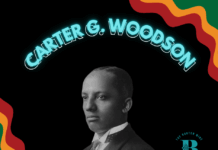
by Nsenga K. Burton
Mali has been in the news lately for Islamist rebels seizing Diably and France’s intervention in the growing crisis. In the midst of the conflict, The Guardian ran an article reminding people of the brilliant musical legacy of Mali that has been all but silenced due to the conflict. The authors write:
…The world has finally focused on the tragedy that has befallen Mali. It took bombing raids from French aircraft to draw attention to the fact that Islamist extremists have captured two-thirds of this beautiful country, imposing a distorted and destructive interpretation of their faith on a people for whom it could not be more alien. Unlike in most conflicts, musicians are on the frontline. For a start, music is now banned in the vast desert regions where once people flocked to the famous Festival in the Desert, near Timbuktu. Yet music is more entwined with the life of the nation in Mali than perhaps any other place in the world: a political, cultural and social force. There was the griot tradition dating back centuries, then in post-independence days musicians were used to bond together a nation that lies on the faultline between the Arab and African worlds. More recently, a succession of sublime artists have blazed a trail around the world, their easily accessible, blues-based sounds making the word Mali even more synonymous with magical music.
Glastonbury Festival organizers have announced the Malian artist Rokia Traoré will host the festival, which will highlight music from Mali. Britain’s most important musical event will be used to highlight Malian music. The authors go on to interview a number of musicians who offer their take on Malian artists and their music that has “touched” them. In the interview, Ali Farka Touré’s name surfaced constantly.
Read more about Malian music in The Guardian.
Like The Burton Wire on Facebook. Follow us on Twitter @TheBurtonWire.







